How to grow a desert rose – the tropical shrub that can bring good luck
This drought-tolerant shrub produces brilliant blooms from spring, proving popular with both gardeners and pollinators
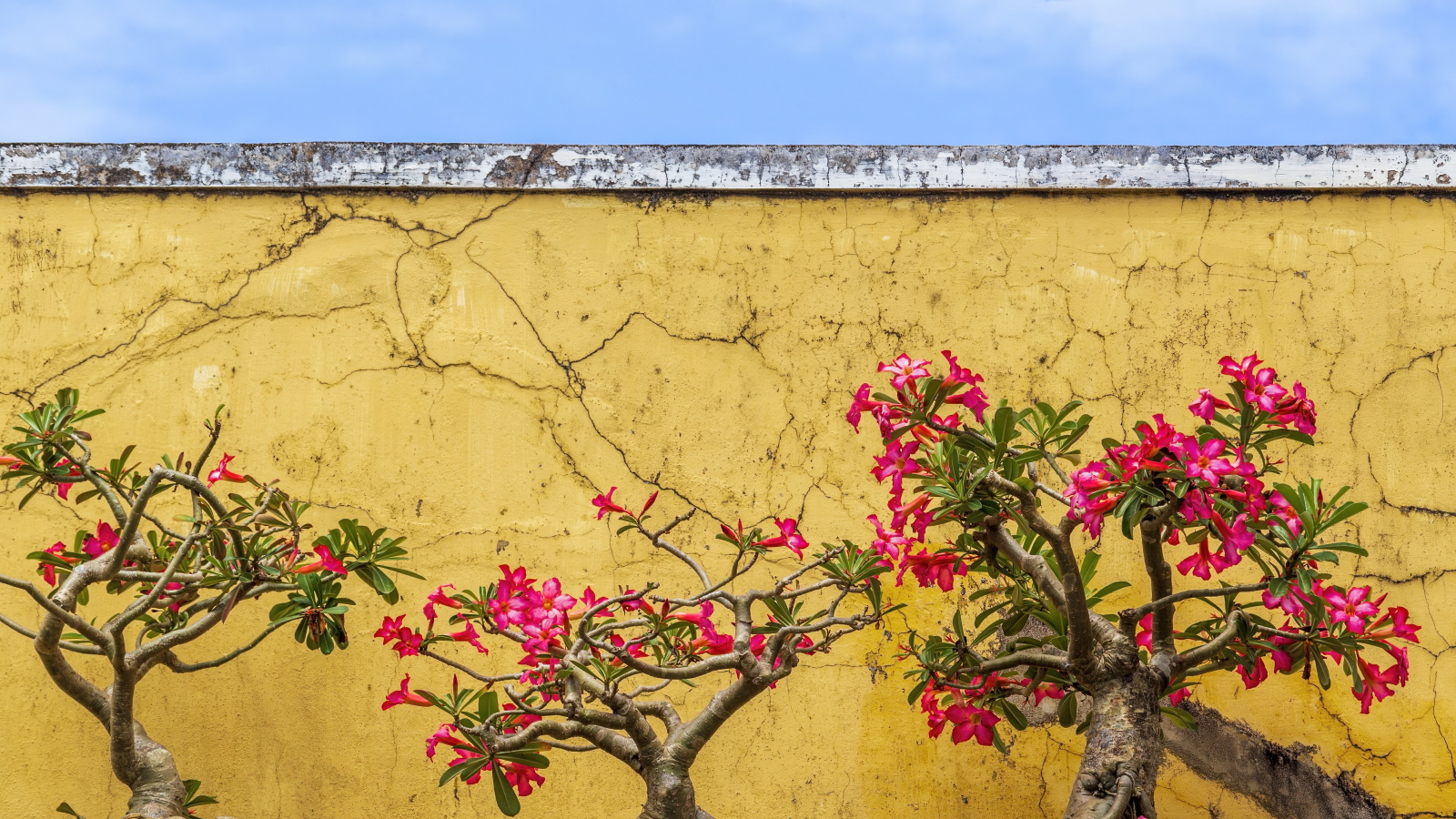

The desert rose, Adenium obesum, is a striking shrub native to arid regions of Africa and the Arabian Peninsula. Despite its name, it is not a rose but a succulent, so called for its beautiful blooms that vary in color from pink, red, white and purple, often with darker markings at the center of the flower.
For those seeking tropical garden ideas or looking for some of the best xeriscaping plants that can tolerate the summer sun, the desert rose is surely a shrub to consider. While it is notable for its flowers, the desert rose is also renowned for its unusual growth habit, with a thick, bulbous trunk that is unique and eye-catching.
This adaptation helps the desert rose to store water and nutrients in challenging, arid conditions, much like some of the best desert plants. This feature of the desert rose is considered by many cultures to bring good luck, with the swollen stem representing fertility and abundance. The larger the trunk, the greater the wealth and abundance that will result. Here, experts share growing advice for anyone seeking to plant a desert rose in their backyard this year, and who knows, this shrub might also bring you good luck in the year ahead.
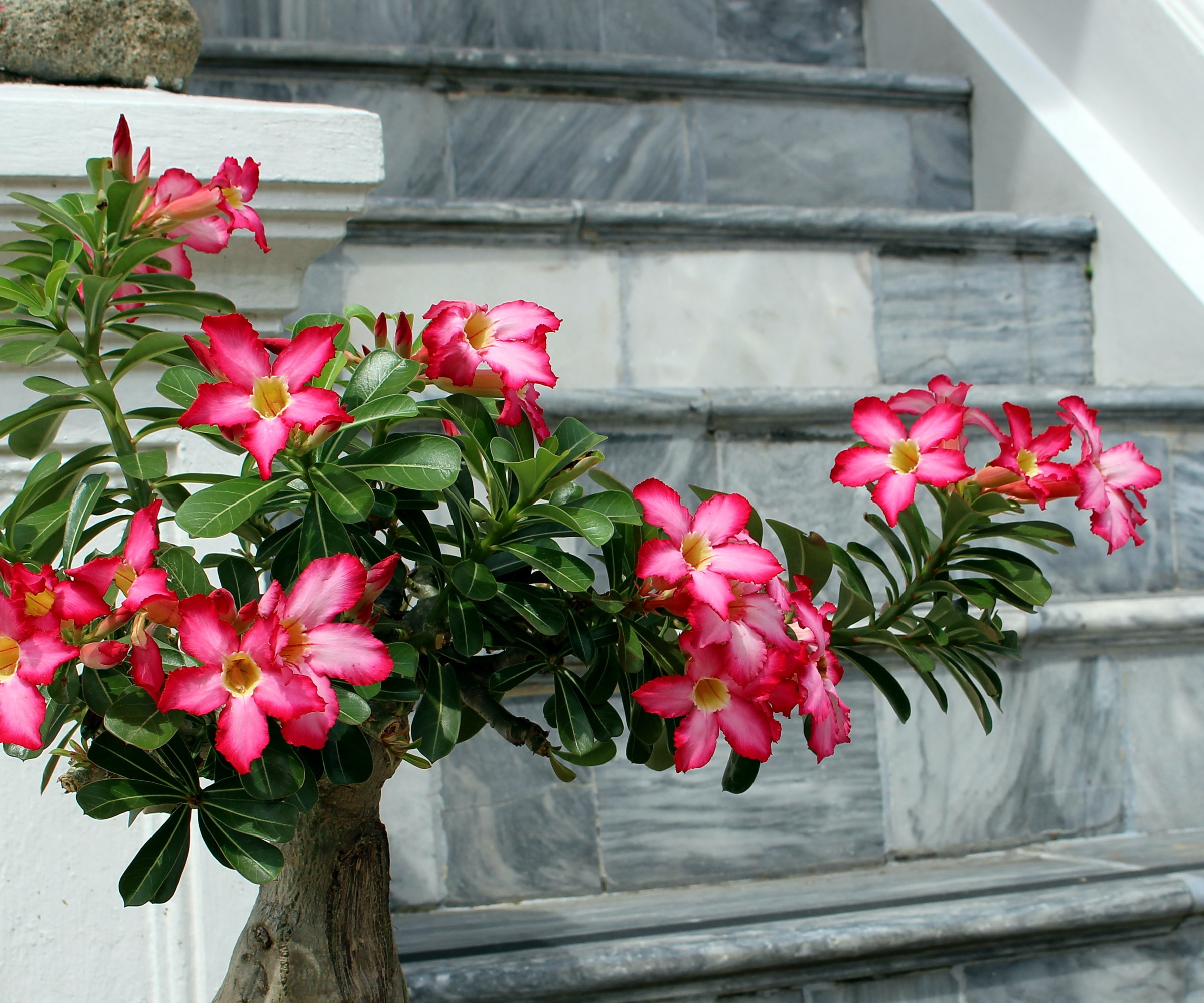
How to grow a desert rose
The desert rose is a flowering shrub that produces beautiful blooms suitable for gardeners seeking drought-tolerant planting ideas. Native to arid regions of the world, this succulent can handle the summer sun with relatively little attention and is often considered one of the best flowering shrubs for full sun positions in the backyard.
Things to consider about growing desert roses
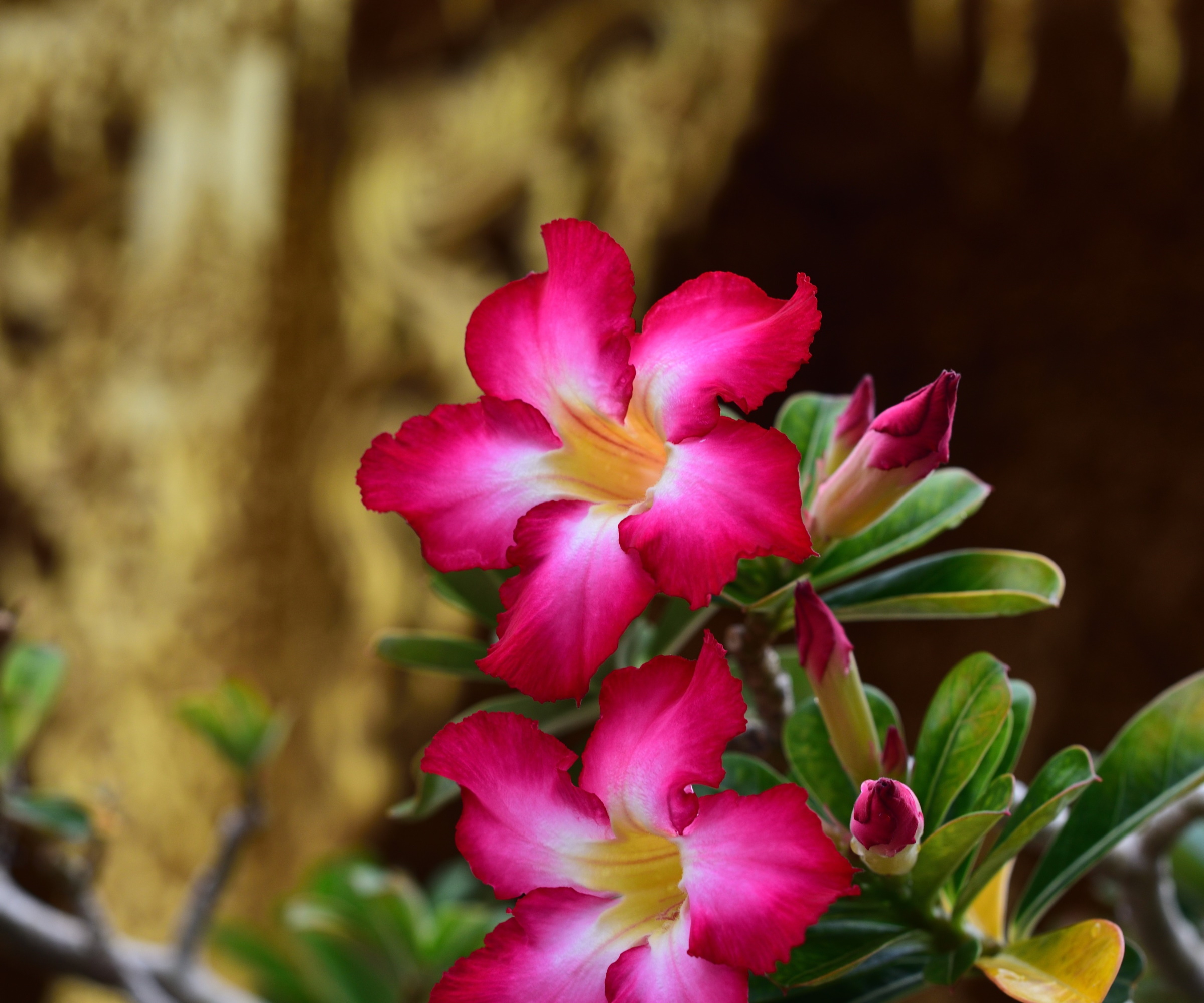
The desert rose is a member of the dogbane plant family, Apocynaceae, which hints at its toxic nature, as many species in this group were once used as dog poison.
Importantly, if ingested, the desert rose is highly toxic to humans and pets, so plant it with caution, treating any poisonous plants with care. 'The sap of the desert rose can cause skin irritations,' says Tricia Hunt, plant expert and owner of Millstone Nursery. 'All parts of this plant, because of the sap, are considered toxic.'
Desert rose leaves appear glossy and succulent-like and are typically arranged in a rosette at the end of the stem, with much of the trunk and stems left bare. During dry periods, the shrub may drop leaves to conserve water.
Design expertise in your inbox – from inspiring decorating ideas and beautiful celebrity homes to practical gardening advice and shopping round-ups.
'The desert rose blooms in spring, but hopefully you will also see some blooms in fall,' says Tricia. 'Growing best in the tropical regions in or around US hardiness zone 10 and above, gardeners in cooler zones can still grow this shrub by overwintering containers indoors,' Tricia adds, 'growing best in temperatures between 60 to 90°F'.
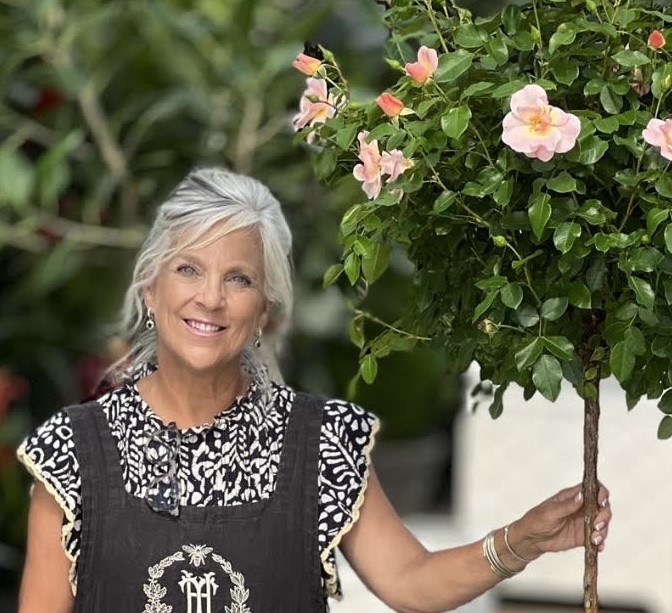
Tricia is the owner and operator of Millstone Market & Nursery, located in the heart of Germantown, Tennessee. Her sweet, Southern-instilled attention to customer service has grown her one-of-a-kind garden center into a destination.
Grow guide for desert roses
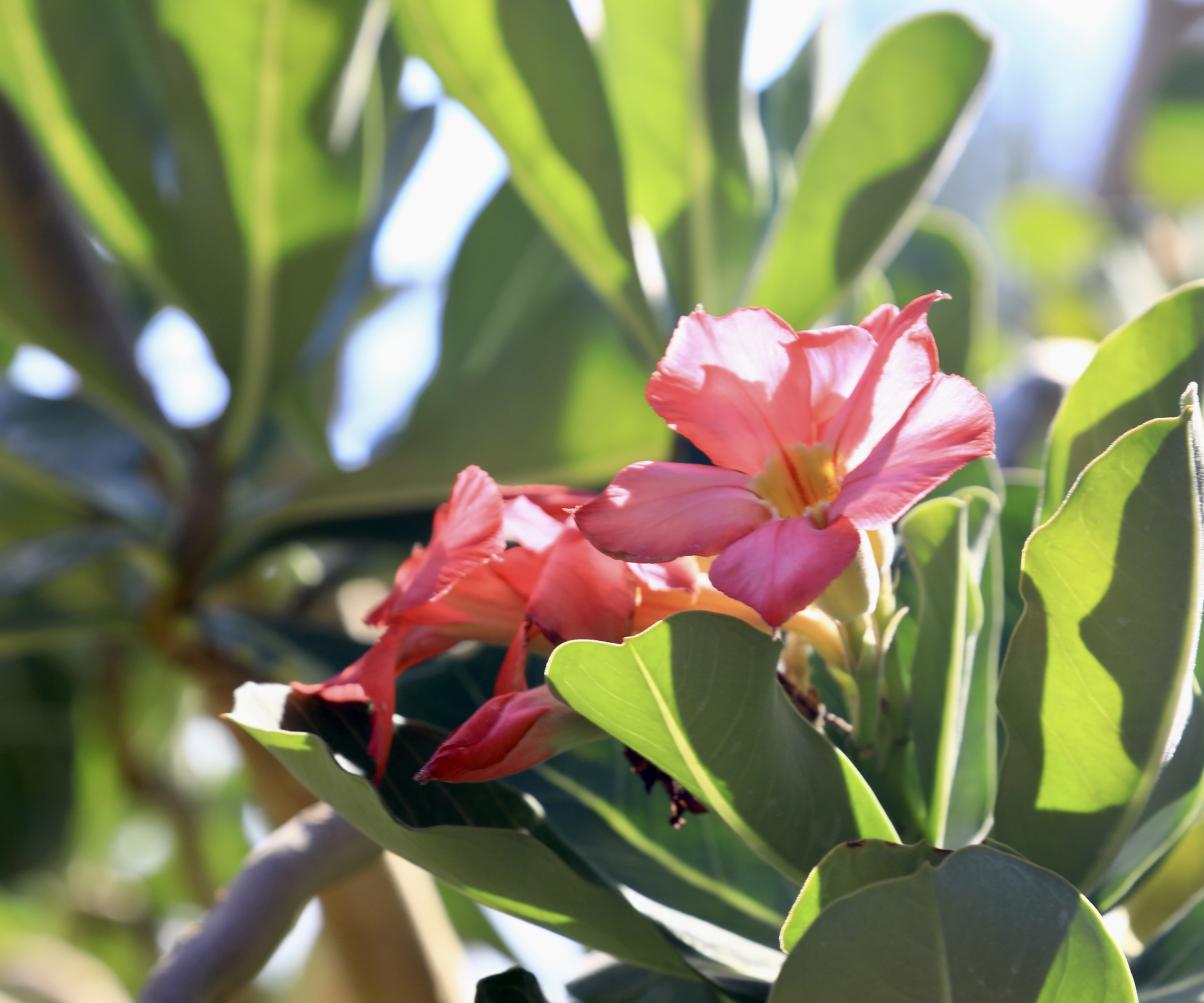
- Soil: This shrub prefers well-draining soil, growing in arid and semi-arid regions in Africa. When considering how to grow succulents for indoor cultivation, the same rules apply when growing outdoors. Desert roses do not like sitting in water so you must allow the shrub to dry out between waterings. If you are growing a desert rose shrub in a container, ensure that you incorporate plenty of drainage material with your potting mix, such as sand or grit, ensuring that the roots of your desert rose shrub do not sit in water.
- Light: 'Desert roses need lots of light for heavy flowering,' says Tatiana Anderson, plant expert and co-founder of Top Tropicals. 'In my experience, in super hot climates, they look healthier in filtered bright light,' Tatiana adds, so if you are growing in a tropical region, consider positioning your desert rose somewhere that is slightly shaded during the hottest part of the day. After purchasing, keep your new shrub away from full sun positions, helping it acclimatize to your yard. 'Once the plant is established and starts growing new leaves, which may take a few weeks, gradually move it into brighter light or plant out in the yard.'
- Watering: 'Water your desert rose plant preferably in the early morning,' Tatiana adds, 'allowing them to drink up throughout the day.' It is recommended that you do not water until the soil is dry on the surface of the border or container. 'Never allow your plant to sit in water,' Tatiana says, 'but don't let them dry out too often as this causes them to go into early dormancy.'
- Fertilizing: Apply a balanced, general-purpose feed to your desert rose in early spring and throughout the growing season, using something like this plant feed from Walmart. 'To help your plant develop a large swollen trunk you will need a good quality fertilizer,' Tatiana says. In addition, Tatiana recommends that gardeners 'water before applying fertilizer to avoid root burn and leaf drop'.
- Pruning: Prune your desert rose in the early spring months before new growth appears. Take care to remove any dead or damaged branches, shaping the shrub as desired. Pruning can also help to control its size, but you mustn't remove more than one-third of the plant's foliage at any one time. As with other essential gardening tools, always use clean and equipment tools to minimize the risk of infection. If you need new tools, many are available to buy online, such as these pruning shears from Walmart.
- Additional Tips: If you are seeking container gardening ideas, desert roses are suitable for growing in pots. Choose a pot with drainage holes at the bottom, using a free-draining soil mix with added sand or grit for greater drainage. Compost mixes for containers, such as this cactus and succulent potting mix from Walmart, are recommended. Water your plant thoroughly and place it in a sunny location, moving indoors during the winter months if you live in a cooler zone. Desert roses tend to be more floriferous when kept slightly pot-bound, preferring their roots to touch the side of the container.

Tatiana Anderson is the co-owner and co-founder of Top Tropicals, based in Fort Myers, Florida. Top Tropicals grow and sell a whole range of flowering and fruiting tropical plants.
FAQs
Can I grow a desert rose plant in a container?
Yes, desert roses can be grown in containers, which is a good option for those residing in a cooler zone but wanting to grow this tropical shrub. Ensure that your container has adequate drainage, and water frequently through the summer months. As the temperatures begin to drop in the fall, bring your container indoors.
Planting a desert rose in your backyard or a container is a great way to incorporate planting that is beautiful and drought-tolerant. Consider also learning how to grow a bottlebrush plant or how to grow an orchid tree, for another specimen that produces brilliant tropical blooms for backyards in warmer regions.

Thomas is a Content Editor within the Gardens Team at Homes and Gardens. He has worked as a professional gardener for both public spaces and private estates, specializing in productive gardening, growing food and flowers. Trained in Horticulture at the Garden Museum, he has written on gardening and garden history for various publications, including The English Garden, Gardens Illustrated, Hortus, The London Gardener and Bloom. He has co-authored a Lonely Planet travel book, The Tree Atlas, due out in 2024.